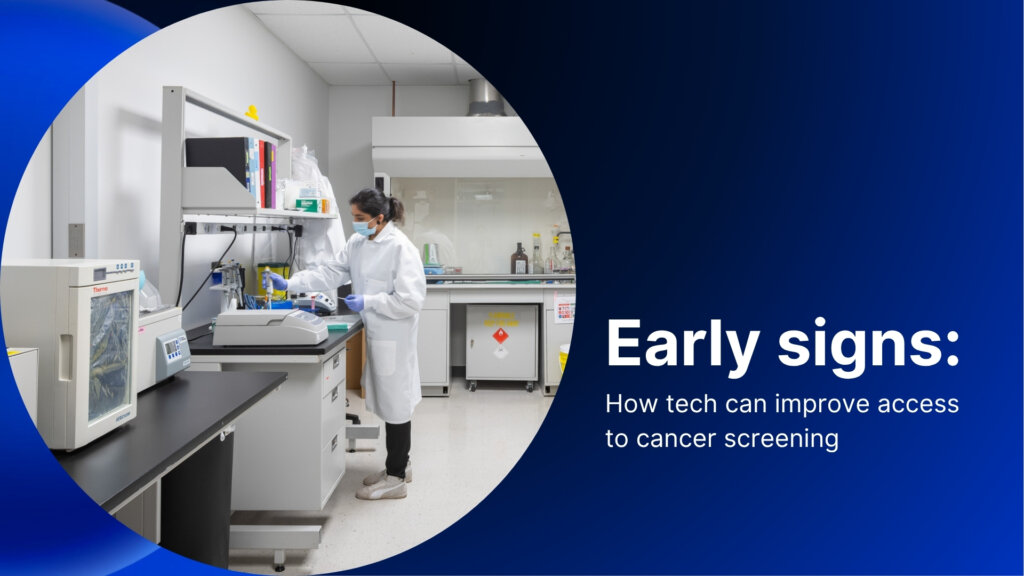Home » Early Indicators: Ways Tech Companies Can Enhance Access to Cancer Screening
Early Indicators: Ways Tech Companies Can Enhance Access to Cancer Screening

The post "Early signs: how tech companies can help improve access to cancer screening" from MaRS Discovery District explores the critical role that technology can play in enhancing cancer screening accessibility. It highlights several challenges faced by patients, including financial barriers, logistical issues, and lack of awareness, which can hinder timely screenings.
The authors emphasize that early detection of cancer significantly improves treatment outcomes and survival rates. Despite the importance of regular screenings, many individuals, particularly those in underserved communities, face obstacles that prevent them from accessing necessary services. This inequity disproportionately affects low-income populations and marginalized groups.
Tech companies are positioned to mitigate these barriers through innovative solutions. The post discusses various approaches, including the use of mobile health applications, telemedicine, and data analytics. Mobile health apps can offer personalized reminders and educational resources, empowering individuals to take charge of their health. Telemedicine allows for consultations without the need for travel, making it easier for patients to receive guidance and referrals for screenings.
Data analytics also plays a crucial role in targeting outreach efforts. By analyzing demographic data and healthcare trends, tech firms can identify populations with low screening rates and tailor interventions to meet their specific needs. This proactive approach can lead to increased participation in screening programs.
The post also highlights the importance of partnerships between tech companies, healthcare providers, and community organizations. By collaborating, these entities can create comprehensive initiatives that foster awareness and accessibility. Such partnerships can leverage existing resources to effectively reach and engage communities.
Furthermore, the post outlines the potential of artificial intelligence (AI) in enhancing screening processes. AI can analyze medical images more efficiently, aiding radiologists in identifying potential cancer cases. This technology can streamline the diagnostic process, leading to quicker and more accurate results.
The authors encourage tech companies to prioritize health equity in their product development. By considering the diverse needs of various populations, these companies can design more inclusive solutions that promote overall public health. Accessibility should be a fundamental criterion in the development of health technologies.
In addition, the discussion touches on the role of education in improving screening rates. Tech companies can utilize their platforms to disseminate information regarding the importance of routine screenings and the resources available to patients. This awareness can help reduce stigma and motivate individuals to seek out necessary screenings.
The post underscores that the future of cancer screening can be transformed with the integration of technology. Innovative solutions can break down barriers, widen access, and ensure that more individuals receive timely and effective screenings. By harnessing the power of technology, there is potential for significant improvements in early detection and cancer outcomes.
In conclusion, the piece asserts that tech companies have a crucial responsibility to engage in the healthcare space, focusing on cancer screening as a pivotal area for intervention. By leveraging their capabilities to enhance access, raise awareness, and foster partnerships, they can contribute to a future where cancer screening is readily available to all, ultimately saving lives and improving health equity.
MaRS Discovery District
https://www.marsdd.com/
MaRS is the world's largest urban innovation hub in Toronto that supports startups in the health, cleantech, fintech, and enterprise sectors. When MaRS opened in 2005 this concept of urban innovation was an untested theory. Today, it’s reshaping cities around the world. MaRS has been at the forefront of a wave of change that extends from Melbourne to Amsterdam and runs through San Francisco, London, Medellín, Los Angeles, Paris and New York. These global cities are now striving to create what we have in Toronto: a dense innovation district that co-locates universities, startups, corporates and investors. In this increasingly competitive landscape, scale matters more than ever – the best talent is attracted to the brightest innovation hotspots.


